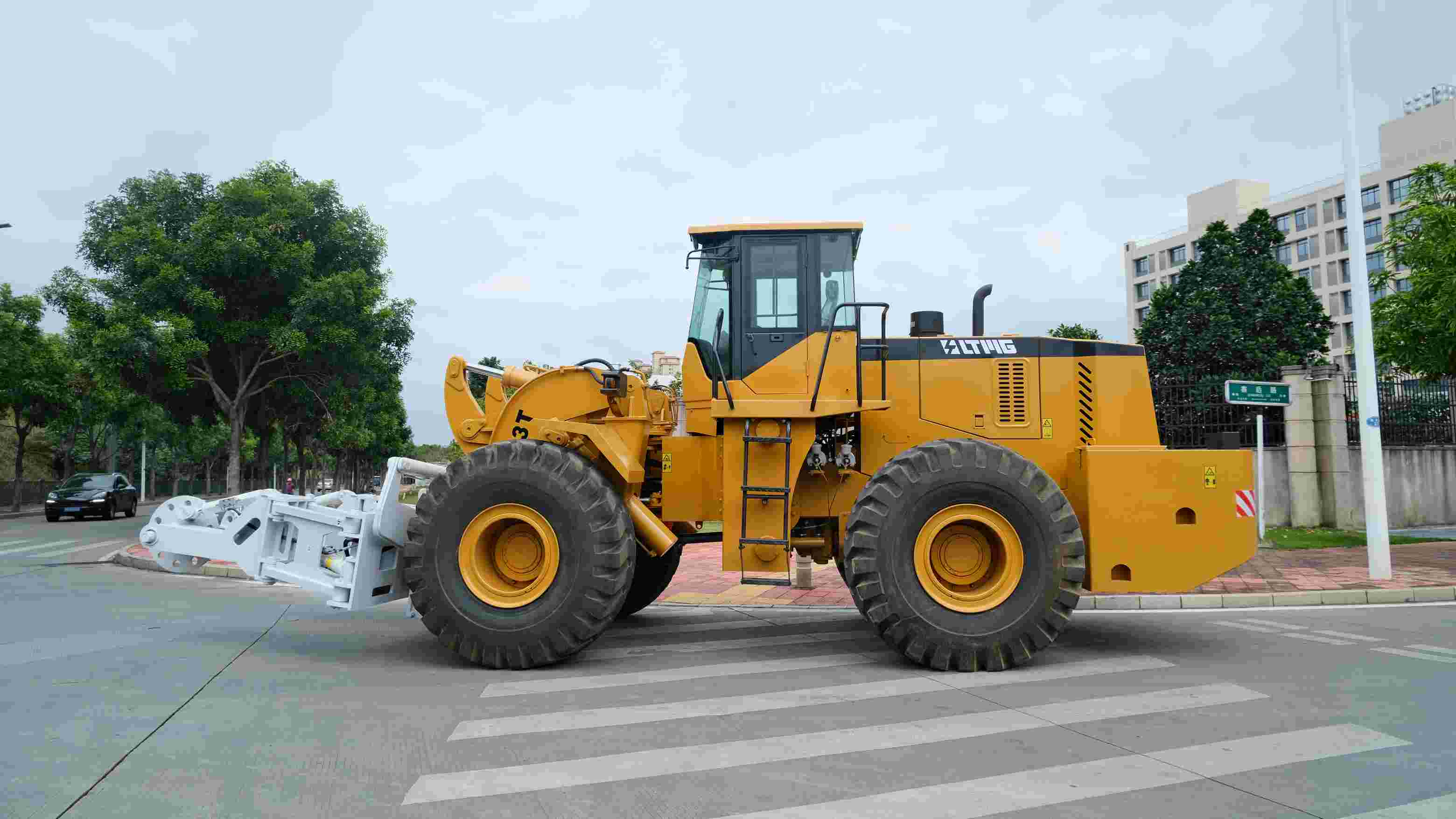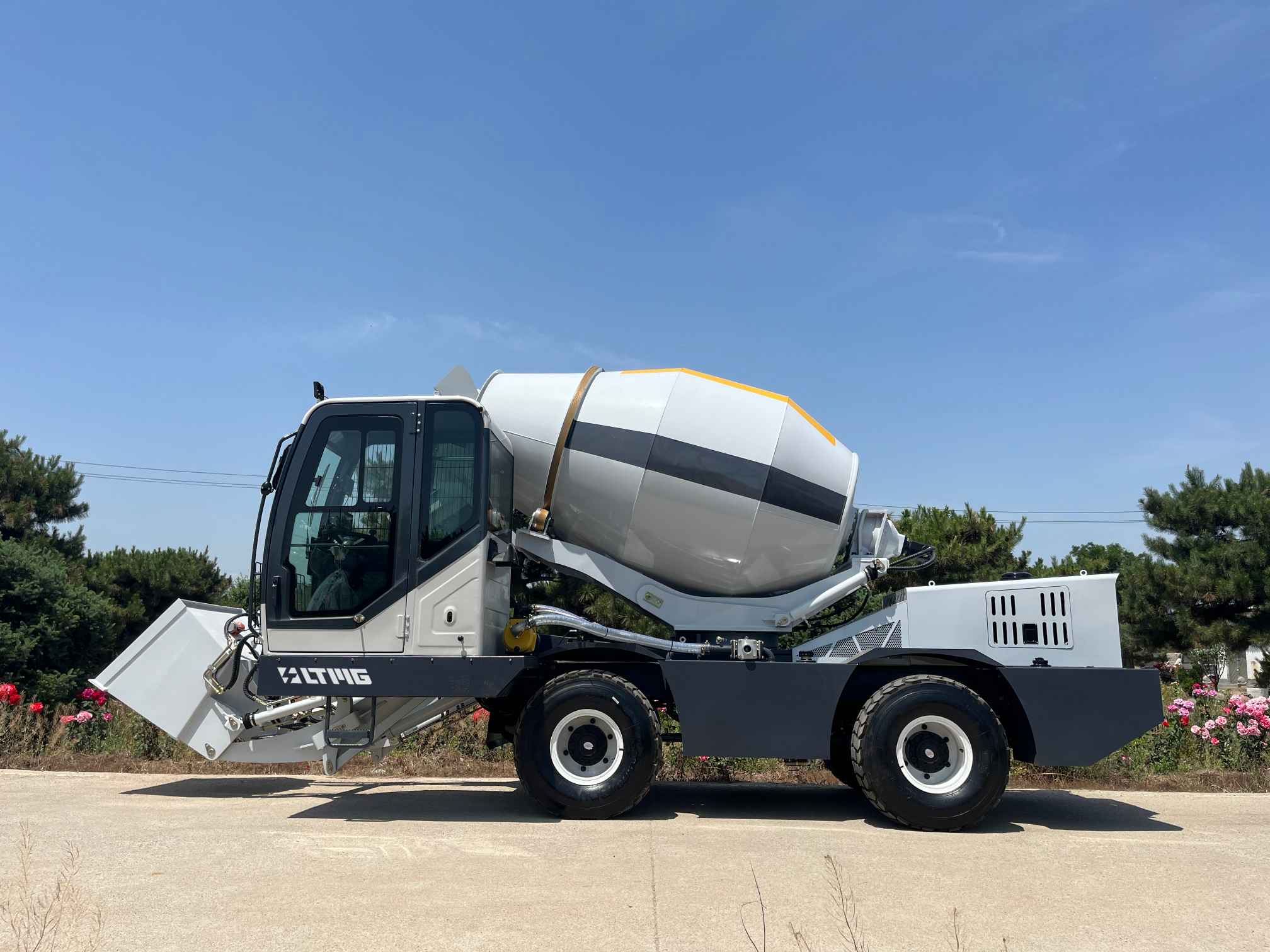Forklift Loader: Features, Advantages, and Applications
Dec 31, 2024
Forklift loaders, also known as heavy-duty forklifts, are widely used in industrial and warehousing operations for material handling, stacking, and loading/unloading tasks. Particularly in construction sites, warehouses, and logistics centers, forklift loaders play a crucial role in improving work efficiency and ensuring safety. In this article, we will explore the core functions, key advantages, and practical applications of forklift loaders, helping you better understand the importance of this equipment in daily operations.
What is a Forklift Loader?
As the name suggests, a forklift loader is a type of heavy equipment that combines the functions of a forklift with those of a loader, typically equipped with an attachment such as forks, a bucket, or other accessories for material handling. Compared to traditional forklifts, forklift loaders have a higher load capacity and are equipped with superior off-road capabilities, making them highly efficient for material handling tasks in rough and uneven terrains.
A forklift loader is primarily composed of a diesel engine, chassis, hydraulic system, and various work attachments (such as forks, buckets, etc.). Its flexible operation makes it suitable for a wide range of applications, particularly in industries that demand high-capacity and versatile machinery.
Key Functions of a Forklift Loader
Forklift loaders typically serve the following essential functions:
Material Handling: The primary function of a forklift loader is transporting materials. Whether it's heavy construction materials or smaller warehouse items, forklift loaders are capable of efficiently loading, unloading, and transporting goods. With their high load capacity, forklift loaders can handle materials ranging from a few tons to tens of tons.
Stacking: Forklift loaders can be equipped with forks that allow for efficient stacking of goods. This function is particularly useful in high-density storage environments or when stacking heavy materials. Forklift loaders are ideal for tasks that require stacking goods at significant heights.
Off-road Capability: Unlike traditional forklifts, forklift loaders perform exceptionally well in off-road conditions. Their strong drive system allows them to navigate uneven and unpaved surfaces, making them suitable for work in areas like construction sites, mines, and forests, where standard forklifts may struggle.
Versatility: Forklift loaders are not limited to material handling alone. By switching out attachments such as forks, buckets, or grapples, these machines can perform a variety of tasks. This flexibility allows them to be used across different industries and applications, from construction to agriculture.
Advantages of Forklift Loaders
Forklift loaders offer several distinct advantages, which make them a popular choice in heavy equipment markets. Here are the key benefits:
High Load Capacity: Forklift loaders are typically powered by high-output diesel engines and feature a strong chassis and hydraulic system, enabling them to handle heavy loads. Their load capacity often ranges from several tons to more than 10 tons, allowing them to carry out demanding tasks with ease.
Stability: The robust design of forklift loaders ensures superior stability when lifting and transporting heavy materials. Even in rough terrain or during high-load operations, forklift loaders maintain a low center of gravity, preventing tipping and providing a stable working environment for operators.
Adaptability to Various Environments: One of the biggest advantages of forklift loaders is their adaptability. Whether operating on smooth warehouse floors or rugged construction sites, forklift loaders are engineered to perform in diverse conditions. Their off-road capabilities and durable tires allow them to function effectively in environments that require heavy-duty machines.
Increased Efficiency: Forklift loaders significantly enhance work efficiency, enabling faster loading, unloading, and material transport. Their powerful hydraulic systems and operational flexibility make them a time-saving solution for tasks that would otherwise require multiple machines or extensive manual labor.
Lower Operating Costs: Diesel-powered forklift loaders tend to have lower fuel costs compared to other fuel types, and their engines are optimized for high-performance work in tough environments. This makes forklift loaders cost-effective in the long term, with minimal maintenance and high fuel efficiency.
Applications of Forklift Loaders
Forklift loaders are used in a wide range of industries, each benefiting from the machine's diverse capabilities. Below are some key applications of forklift loaders:
Construction Sites: Forklift loaders are commonly used on construction sites to transport building materials such as cement, steel, bricks, and concrete blocks. Their high lifting capacities and off-road capabilities make them ideal for moving heavy materials and working in tough terrain.
Mining and Quarries: In mining operations and quarries, forklift loaders are used for the transportation of heavy ores, minerals, and rocks. Their load-bearing capacity and ability to perform in rugged, uneven terrain make them indispensable in these industries.
Warehousing and Logistics: Forklift loaders are widely employed in warehouses and logistics centers for tasks such as loading/unloading containers and stacking goods. Their flexibility in attachments and high lifting heights make them suitable for various material handling tasks in these environments.
Agriculture and Landscaping: In agriculture and landscaping, forklift loaders are used to transport soil, fertilizers, crops, and other heavy items. Their versatile attachments and ability to work in rural and uneven terrain make them valuable assets in these fields.
Ports and Terminals: Forklift loaders are also used in ports and terminals for container handling, stacking, and loading/unloading operations. Their ability to maneuver in tight spaces and handle large, heavy containers makes them essential in port operations.
How to Choose the Right Forklift Loader
When selecting a forklift loader for your business, several factors should be considered to ensure that the machine is suited to your specific needs:
Load Capacity: The load capacity of a forklift loader is a critical factor. Depending on the weight of the materials being handled, you should choose a forklift loader with the appropriate load capacity. Forklift loaders typically range from 3 tons to 20 tons, so selecting the right model for your operation is essential.
Operating Environment: The environment in which the forklift loader will be used plays a significant role in the selection process. If you’re working in a smooth, indoor warehouse, a standard forklift loader may suffice. However, if your operation involves rough terrain or construction sites, a model with enhanced off-road capabilities would be more suitable.
Efficiency: Forklift loaders vary in terms of their operational efficiency. Choose a model that offers the best balance of speed, power, and fuel economy for your tasks. Higher efficiency will reduce operating costs and increase productivity.
Fuel Type: While our focus is on diesel-powered forklift loaders, it’s essential to note that fuel efficiency can affect overall operating costs. Diesel engines are ideal for high-load environments as they offer excellent fuel economy and are designed for intensive work.
Safety Features: Safety is paramount when selecting a forklift loader. Look for features such as stability control systems, ergonomic cabins, and high-visibility areas to ensure the safety of operators. Forklift loaders should also comply with industry safety standards to minimize the risk of accidents.
Forklift loaders are versatile, high-performance machines that have become indispensable in industries such as construction, mining, warehousing, and logistics. Their ability to handle heavy loads, operate in rough terrain, and perform various tasks makes them valuable assets for businesses looking to improve operational efficiency and reduce costs. By choosing the right forklift loader for your business, you can optimize productivity, ensure safety, and achieve long-term savings on operational costs. As technology continues to advance, we can expect even more innovative features in future forklift loader models, further enhancing their capabilities and performance in diverse working environments.

